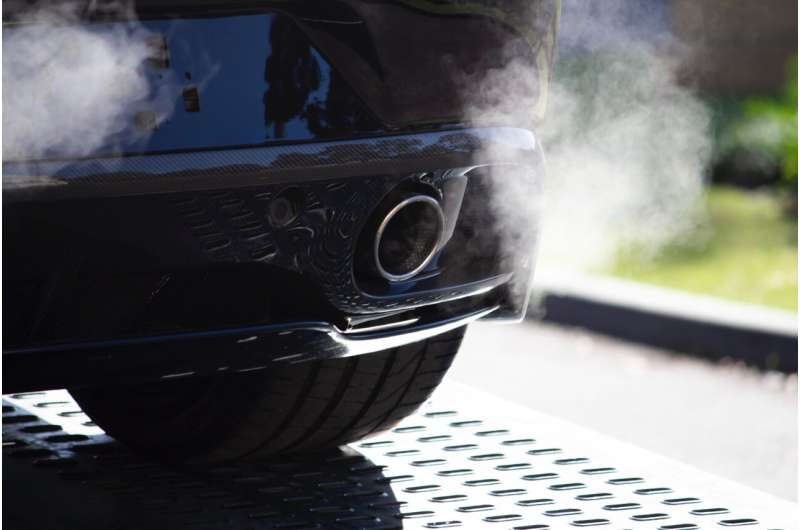New online tool to help residents reduce the impact of traffic-related air pollution

Researchers at the University of Surrey have released a new online tool to help schools, hospitals and residents understand and reduce the impact of traffic-related air pollution.
The Hedge Design for the Abatement of Traffic Emissions (HedgeDATE) online tool allows users to describe their environment—such as a road with buildings on one side—and then recommends actions citizens can take to improve its air quality.
For example, HedgeDATE advises that a resident living in a shallow street canyon should install hedges and a green wall; the tool can also give more detailed information on the species of plants suitable for different locations.
The development of HedgeDATE builds on years of research and public engagement work by the University of Surrey's Global Centre for Clean Air Research (GCARE). HedgeDATE grew out of workshops on air pollution mitigation conducted with local communities as part of Guildford Living Lab.
Professor Prashant Kumar, founding director of GCARE and founder of the Guildford Living Lab at the University of Surrey, says that "the best use of research is for public benefit. However, this poses the challenge of translating complex science into simple, evidence-based actions. At GCARE, we proactively engage with the community and produce co-designed solutions such as HedgeDATE. Soon, when the world is back on its feet after the pandemic, we will need to come to terms with the air pollution and climate change crisis.
"HedgeDATE is about giving ordinary people—our schools, hospitals and councils—easy-to-use tools that can inspire them to make a real difference to the quality of the air they breathe."
Justine Fuller, co-author of the paper on HedgeDATE from Guildford Borough Council, says that they "have been collaborating with Professor Kumar's team for many years. The HedgeDATE tool is an excellent means of engaging the public on air pollution issues. It has been a pleasure to support this project and will look forward to sharing this with the interested user groups."
Dr. Stuart Cole, another co-author from Oxfordshire County Council, says they are"proud to be collaborators on the HedgeDATE project. HedgeDATE will be a useful educational tool for councils, schools, other organizations and members of the public to consult when planning green areas for improved air quality."
Professor Stephen Holgate, UK Research and Innovation and Met Office Clean Air Champion, and Special Advisor to the Royal College of Physicians on Air Quality, says "HedgeDATE is another excellent outcome of the work undertaken by Professor Kumar's team to communicate complex science via practical and accessible means. Like their earlier work on guidance for schools, this tool will help to improve and protect public health. There is an urgent need for a joined-up approach to communication, which is one of the next important tasks for us in our role as UKRI/Met Office Clean Air Champions."
The research was published in Sustainable Cities and Society.
More information: Yendle Barwise et al, The co-development of HedgeDATE, a public engagement and decision support tool for air pollution exposure mitigation by green infrastructure, Sustainable Cities and Society (2021). DOI: 10.1016/j.scs.2021.103299
Online tool: hedgedate.eps.surrey.ac.uk/Hed … eDATELandingPage.php
Provided by University of Surrey




















